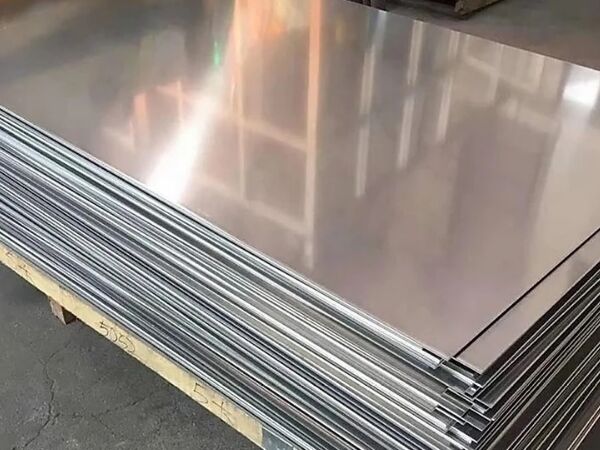ASTM A36 steel plate and ASTM A572 Grade 50 steel plate are two of the most widely used
structural carbon steel plates in construction and industrial projects. Although both standards are governed by ASTM specifications and are commonly used for structural purposes, they differ significantly in strength level, alloy composition, and application scope.
Understanding the difference between ASTM A36 vs ASTM A572 Grade 50 is essential when selecting the right steel plate for bridges, buildings, machinery, and other load-bearing structures.

Overview of ASTM A36 and ASTM A572 Steel Plates
ASTM A36 is a standard carbon structural steel with good strength, excellent ductility, and outstanding weldability. It is often considered the most economical choice for general structural applications.
ASTM A572 is a high-strength low-alloy (HSLA) structural steel, available in five grades: Grade 42, 50, 55, 60, and 65. Among them, ASTM A572 Grade 50 is the most commonly used due to its higher yield strength while maintaining reasonable formability.
Chemical Composition Comparison
ASTM A36 Steel Plate:
ASTM A36 steel plate is a low-carbon structural steel with a maximum carbon content of approximately 0.25%, containing very limited alloying elements. This low carbon design gives A36 steel good ductility and toughness, along with excellent weldability, machinability, and formability. Because of these characteristics, ASTM A36 is easy to process into beams, plates, angles, channels, and other conventional structural shapes, making it suitable for general-purpose structural applications.
ASTM A572 Grade 50 Steel Plate:
ASTM A572 Grade 50 steel plate is also classified as mild steel, but it contains additional alloying elements such as manganese, columbium (niobium), and vanadium, which significantly enhance its mechanical strength. As a high-strength low-alloy (HSLA) steel, A572 Grade 50 achieves higher yield strength without a substantial increase in carbon content. This optimized chemical composition allows the steel to maintain good toughness while delivering superior load-bearing performance, making it well suited for high-stress structural applications.
Comparison of mechanical properties:
|
|
Yield strength
|
Tensile strength
|
Elongation A/%
|
|
A36
|
≥250Mpa
|
400-500Mpa
|
≥23
|
|
A572 grade50
|
≥345Mpa
|
≥450Mpa
|
≥18
|
Key Mechanical Differences
Yield strength of A572 Grade 50 is about 38% higher than A36;A36 offers better elongation and ductility, making it easier to form;A572 Grade 50 provides higher load-bearing capacity with thinner sections;For projects where strength-to-weight ratio is critical, A572 Grade 50 often outperforms A36.
Application Comparison: Where Each Steel Is Best Used
ASTM A36 Steel Plate Applications
ASTM A36 is widely used in : Low-rise buildings、General steel structuresBase、plates and gusset plates、Light industrial equipment、Non-critical load-bearing components.
It is ideal for low-stress, cost-sensitive projects where extreme strength is not required.
ASTM A572 Grade 50 Steel Plate Applications
ASTM A572 Grade 50 is commonly used in : Bridges and overpasses、High-rise buildings、Heavy structural frames、Construction machinery、Structural engineering projects requiring high strength.
Its higher yield strength makes it suitable for high-stress environments and long-span structures.
Weldability and Machinability
ASTM A36 steel offers excellent weldability and machinability, often requiring minimal process control.
ASTM A572 Grade 50 is also weldable, but due to its higher strength and alloy content, proper welding procedures (such as heat input control) are recommended.
In general:
A36 is easier to cut, drill, and form, A572 Grade 50 excels where strength and durability are prioritized.
Cost Considerations
Many users search for: “Is A572 Grade 50 more expensive than A36?”
ASTM A36 is typically more economical
ASTM A572 Grade 50 has a higher material cost, but can reduce overall project cost by allowing thinner plates and lighter structures
Choosing between the two often depends on design requirements rather than material price alone.
Conclusion: ASTM A36 vs ASTM A572 Grade 50 — Which Should You Choose?
Both ASTM A36 steel plate and ASTM A572 Grade 50 steel plate are reliable and widely used structural materials.
Choose ASTM A36 for general-purpose structures, easier fabrication, and lower cost
Choose ASTM A572 Grade 50 for high-strength structural applications where performance and load capacity are critical
Ultimately, the right choice depends on project strength requirements, design standards, fabrication conditions, and budget considerations.
Read more:ASTM A36 carbon steel pipe
